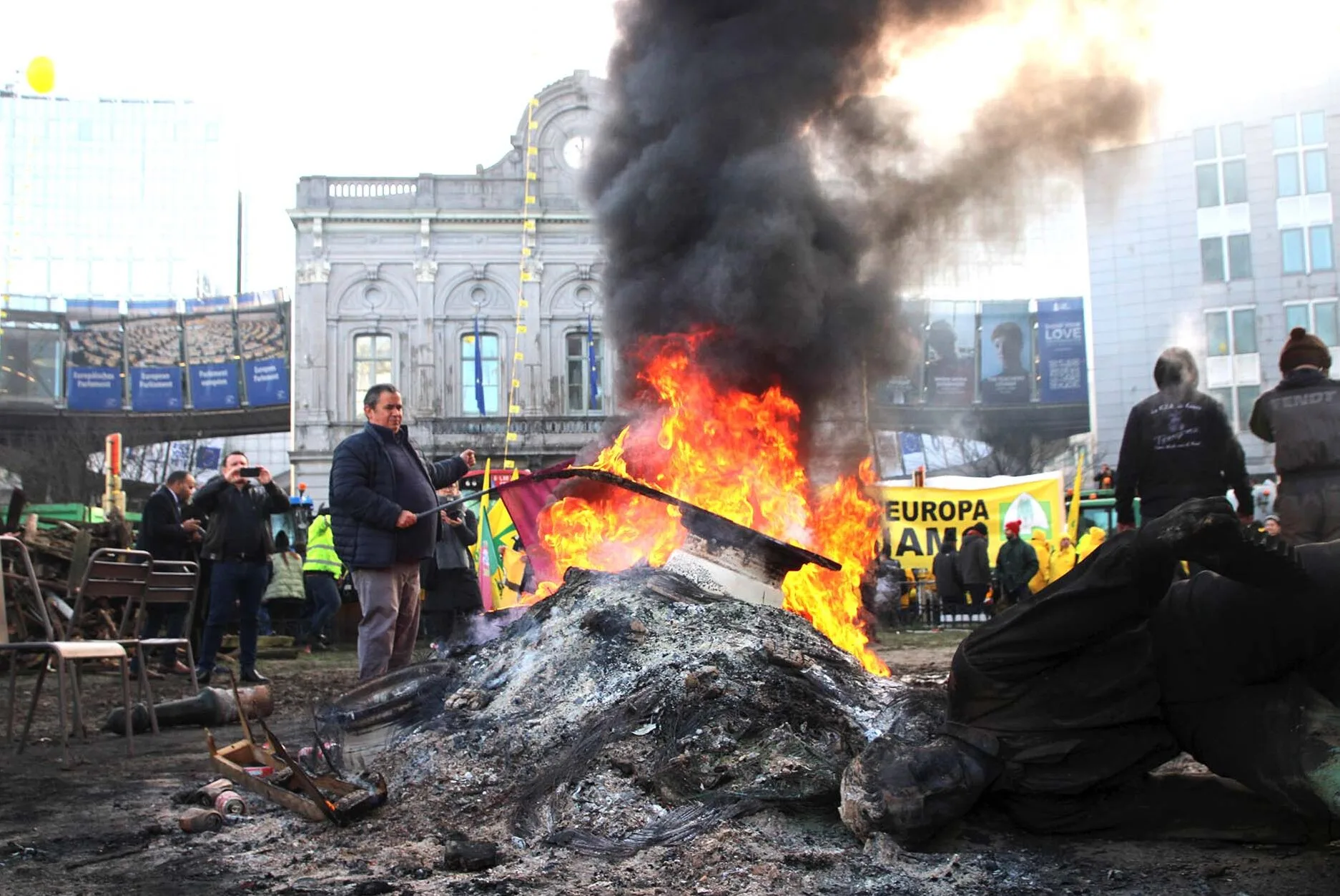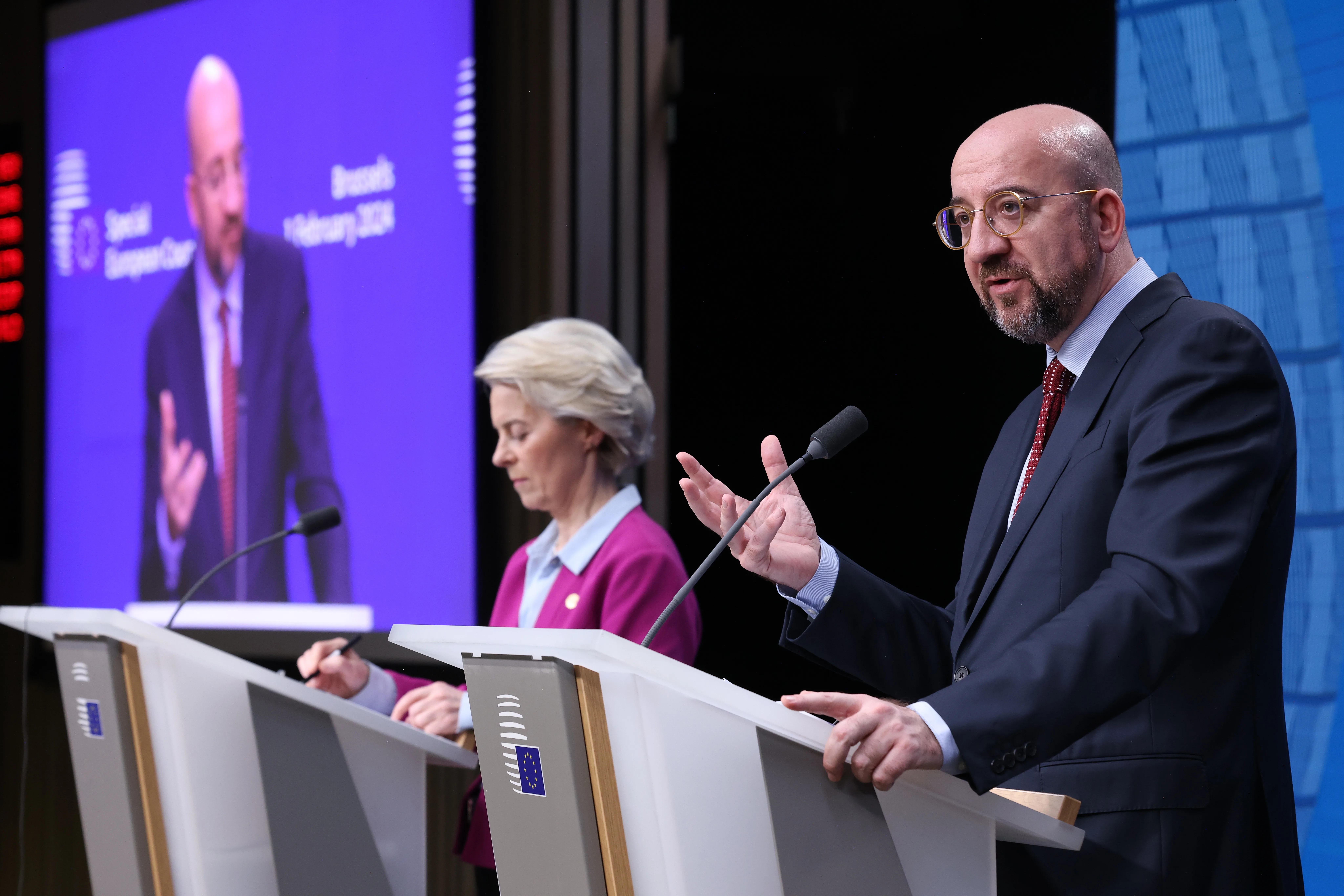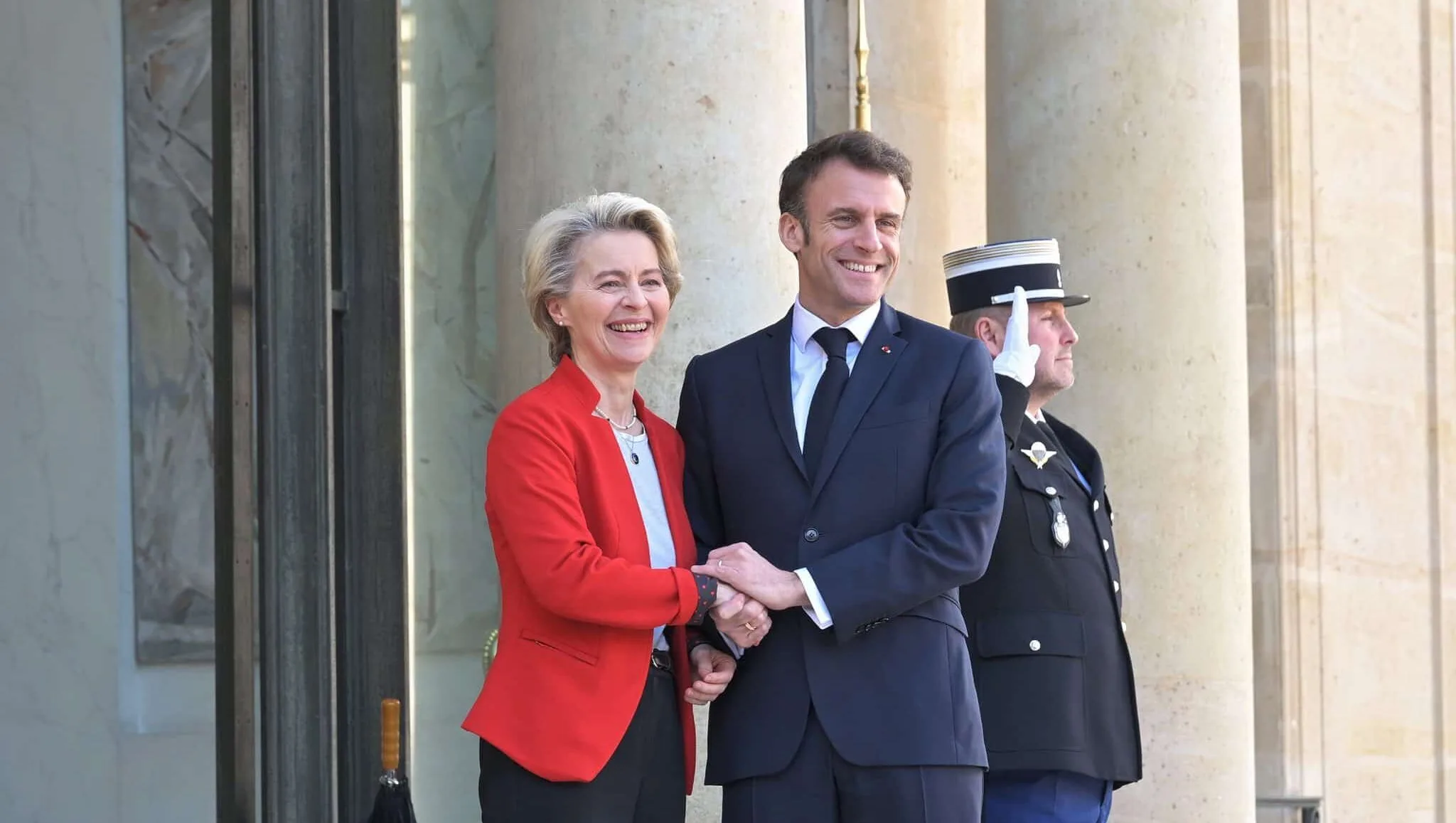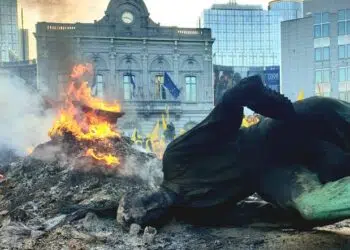Brussels – The images of the 1,300 tractors blocking the European district in Brussels today (Feb. 1) made the rounds of the EU capitals, but they also reached a few hundred meters away at the European Council headquarters where EU heads of state and government were gathered. The leaders chorally pledged support for the agricultural world, but indicating the most concrete steps was the French president, Emmanuel Macron, who is facing the most violent unrest at home.
In the forecourt of the European Parliament, several fires were lit, bottles thrown toward the entrance of the building, and a statue destroyed—with no particular resistance from Belgian police—certifying the anger of the sector in the face of the environmental policies of the past five years.

An anger first commented on by the president of the European Parliament, Roberta Metsola: “My appeal is to use one’s voice to vote in June, not to destroy,” she said on the sidelines of the European Council, explaining that “the task of us candidates in the next elections will be to speak locally about what we have done in green transition policies, to be proud of these decisions, to confront citizens about what could be improved and to explain the benefits of these measures.”
However, Metsola called for a focus not on condemning the protests but on listening to a sector that is “essential to decarbonizing our economy.” Finally, Metsola admitted that the strategic dialogue initiated by von der Leyen with the agricultural world is “a bit late.”

Ursula von der Leyen and Charles Michel
In the customary joint press conference, Ursula von der Leyen and Charles Michel reaffirmed the “attachment to agricultural policies” of European leaders. The chairwoman of the European Commission, on the list of defendants for having most of all pursued the Green Deal dossiers headlong, recalled that 390 billion euros have been allocated for the new Common Agricultural Policy (CAP), a third of the total EU budget. And that in 2023 the EU executive has put 500 million on the plate for the farmers most in need.
Macron: Simplification measures by February and European egalitarianism
Stressing again the launch of the strategic dialogue just a week ago, von der Leyen assured that “farmers can count on the support of the EU”: the next move will be a proposal to reduce administrative burdens for farmers, von der Leyen announced again. The President of the French Republic, Emmanuel Macron—who had a meeting precisely with von der Leyen today to discuss the agricultural crisis—also set a deadline: “The strategic dialogue will allow by the end of February to take simplification measures at the European level,” he announced to journalists on the sidelines of the summit.

Ursula von der Leyen and Emmanuel Macron at the Elysée Palace, 03/04/23
The French president is the most determined to dictate the line: “We need a simpler agricultural policy that takes into account the need to produce more, that integrates environmental goals, but does so while preserving fair competition, farmers’ profits, and our food sovereignty.” Macron asked von der Leyen to work on creating a European health and agricultural inspection force to prevent unfair competition among EU member countries.
But it is from the outside that European “food sovereignty” is most threatened: “The rules that apply internally for production must also apply externally when we facilitate imports,” Macron warned, and went sideways on the ratification of the trade agreement with Mercosur countries: “France will continue to oppose the text as it stands today. We demand that the environmental and health rules we impose on our farmers be the same as those to whom we open our doors,” the liberal leader continued.
France, where farmers’ unrest is paralyzing the country, is resorting to national measures to roll back the protest. Measures in favour of the agricultural world “already put in place” by the Italian government, claimed Prime Minister Giorgia Meloni. “A problem that Italy has already addressed because we have done important work on the agricultural world,” Meloni commented, recalling that the Italian centre-right has long argued that “the ecological transition should not be ideological” and that we should not exchange “environmental sustainability for economic and social sustainability.” For Meloni, in Europe, “a lot has been wrong in this respect.”
English version by the Translation Service of Withub







